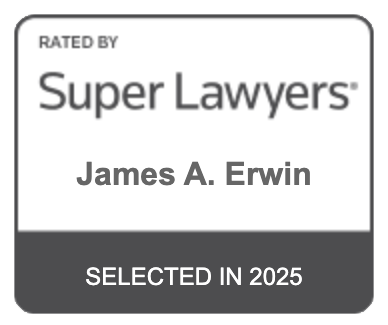If it looks like your client is headed toward litigation over earnest money from a failed deal, understanding the principles of earnest money litigation is key to obtaining the best outcome.
When it comes to earnest money, there are two major common misconceptions. Some people think that, if one party defaults, the other party automatically gets the earnest money. And others think that, if a party has to sue to collect the earnest money, they will also automatically recover their attorneys’ fees when they win.
But neither is actually true …!
The reality is earnest money generally cannot be released to either the Buyer or the Seller without their mutual consent. And recovery of attorneys’ fees is far from certain, even where the contract says the prevailing party should recover those fees.
That said, there are ways to avoid earnest money disputes -- and opportunities to increase your chances of winning, should litigation be unavoidable.
Make the earnest money amount meaningful.
Understand that, if there is a dispute over the earnest money, the likelihood of success often increases as the amount of the earnest money increases. If there is only $1,000 of earnest money, there is little incentive for either party to give sway.
Additionally, it is much harder to get a principled litigation attorney to agree to pursue that amount because the costs of litigation will, without fail, be substantially higher than the amount sought in recovery.
Make sure your client is able to recover attorneys’ fees.
The Multi Board Model 7.0 contract, which is commonly used in the Chicagoland area, does include such a provision. But many other form contracts being used in our area do not. And often times, even when the provision does exist in the contract, it is unwittingly waived during attorney review.
Prepare your client.
Before entering into litigation, be sure to understand the nature and costs of the process.
The process begins by sending a demand letter. If the opposing party does not comply with the demand, or there’s no sight of a settlement on the immediate horizon, the next step is to file a lawsuit.
That said, getting to this point in the litigation process will generally cost a client between $2,500 and $3,500 in legal fees, filing costs and process service fees. And if the case does actually go to trial, the client can expect to spend at least an additional $20,000 in legal fees, and up to two years before obtaining a judgment.
Deciding to engage in litigation isn’t for the faint hearted, shouldn’t be taken lightly, or be done without professional guidance.
For over 25 years, the professionals at Erwin Law have been working with both buyers and sellers on myriad real estate legal challenges, including earnest money recovery cases.
Our extensive experience helps us gauge the merits and strengths of every case, and we’ve designed a proven approach that produces successful results, sometimes within just a matter of days. If you have a dispute in the making, call Erwin Law at 773-525-0153. With a 95% success record in this arena, we are well-equipped to guide you through the challenges.

All materials herein have been prepared by Erwin Law for informational purposes only and are not legal advice. Transmission of the information is not intended to create, and receipt does not constitute, an attorney-client relationship between you and the rm. You should not act upon this information without seeking professional counsel.
Copyright © 2026 Erwin Law. All Rights Reserved.